Microsoft accounted for one-third of retail software sales in 2010

Yeah, but what about 2011, with the app store craze?
NPD released new US data early today suggesting retail software isn't going away soon. As measured in dollars, Microsoft accounted for one-third of US retail software sales last year. Office 2010 led the company's sales. As previously reported, Student and Home Edition accounts for about 85 percent of Office sales. Office pushed the productivity suite category to a four-year sales high.
Risk-averse enterprises get Google relief: They can delay and schedule Apps upgrades
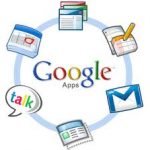
If there is one truism about IT organizations -- they're risk averse. Some are so against making changes they even take unnecessary risks to avoid others, like continuing to use Internet Explorer 6 even as Microsoft pushes hard to get businesses on a more modern, and safer, browser. Today, Google extended a concession to IT organizations by offering a second track for Google Apps that lets IT organizations delay and take seemingly more control over upgrades. The program smacks against one of cloud computing's benefits: Seamless and seemingly maintenance-free upgrades.
Google Apps' administrators can now choose "Rapid Release" or "Scheduled Release" options. The first track assures that users have the most up-to-date software. The second allows administrators to delay updates, which will be released to them on Tuesdays. Google provides a calendar of planned upgrades, seven days in advance of new features' release.
Would you believe what people are writing about Zune's death?

Microsoft has tagged the Zune music player end of life, although the software will live on. Perhaps the kindest way to think of it is transformation: From caterpillar to butterfly. Zune will be freer now to roam among many devices. But many people posting blogs or news stories about the music player's demise are using it as opportunity to kick the corpse: Some Zune epitaphs are even nastier than I expected. For example, the Apple 2.0 blog turned Zune into a verb to describe future failed tablets.
While the first report originated with Bloomberg, many of the blogs cited Business Insider as the source. Betanews took the time to ask Microsoft about Zune plans. My colleague Tim Conneally emailed Microsoft's outside PR agency for comment; I called and left voicemail. We chose to post an originally sourced story, while also crediting Bloomberg. I posted late last night.
iPod didn't kill Zune, Microsoft did
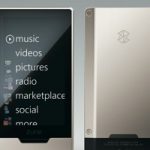
Earlier today, Bloomberg reported that Microsoft has unofficially killed the Zune music player. The company isn't officially saying yes or no, but based on a statement there's little doubt. I've read enough non-denials to know a tacit confirmation.
"We're absolutely committed to providing the best movies, music and TV show experiences through Zune on Xbox, the PC, Windows Phone 7 and Zune devices," according to a statement provided by Microsoft's outside PR agency responsible for Zune. "We'll share more information about the evolution of the Zune entertainment service and Zune hardware as future plans develop."
Profiteers feed off iPad 2 shortages
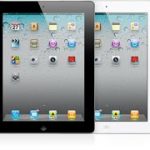
Apple's second-generation tablet is pretty much sold out everywhere. If you want one, good luck trying. Shortages are sure to intensify demand, and crazy buying behavior. It's a psychology-of-buying thing, like customers running on the bank to get out their cash. People afraid they won't get iPad 2. The next couple of weeks are going to be ugly, as desperate masses fight to get Apple's tablet, further feeding hype and desperation, further pumping up demand (and prices).
The iPad 2 aftermarket is already in motion, as resale parasites -- looking to profit from shortages -- sell iPad 2s they snatched up before genuine buyers could get them from Apple stores. There's hot trade on eBay today, with the 32GB WiFi white iPad 2 selling in the mid $700s. The profiters are interested in more than Americans who couldn't get iPad 2 over the launch weekend. They're looking to profit from sales to international markets where iPad 2 isn't yet available but where there is demand.
Who bought iPad 2?
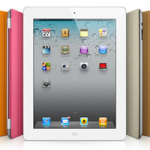
Betanews readers are an opinionated lot, and they have a lot to say about Apple's second-generation tablet, which went on sale at 5 p.m. March 11th. Yesterday I asked: "Did you buy iPad 2?" Many of you tried but found local stores sold out. Many others would kiss the devil before buying iPad 2 -- or any Apple product, for that matter.
"If you haven't bought the iPad 2 you're either broke or on drugs," Roland Jefferson writes in comments from his iPad 2. "There is no in-between or fine gray line. Take your pick: broke or on drugs. To which Hans Torm replies: "You got it wrong. You bought an iPad 2 so apprently you are on drugs and broke. :p"
Did you buy iPad 2?

I did. My teenage daughter wants to use one for school. Late-afternoon yesterday, I waited for a surprisingly short time outside Apple Store Fashion Valley in San Diego, where at least 500 people lined up to get an Apple tablet. The doors opened at 5 p.m. local time, and I completed my purchase by 6:20 p.m. Apple Store employees rapidly processed purchases using iPhones.
Judging by the number of people using iPhones -- I'd say 60 percent to 70 percent -- the majority of buyers here were existing Apple customers. So in answering "Did you buy iPad 2" please also express whether or not you use other Apple products and whether or not you purchased (or otherwise own or owned iPad 1). Please respond in comments, or email joewilcox at gmail dot com.
My shocking visit to the Apple Genius Bar

For years, I've asserted that in selling products and building up brand loyalty, feelings are more important than rational things. People are more likely to make purchase decisions based on emotions than intellect. Oftentimes, particularly with brands that evoke loyalty, buyers' emotional responses are irrational. I see this characteristic among hardcore Apple fans, who brisk at what they perceive to be the slightest criticism of the company or its products.
I must say that I'm feeling surprisingly good about Apple today. For the second time in nearly three years, Apple gave me a new computer to replace one recently purchased -- each a MacBook Air. But is it good customer service or faulty products?
iPad market share plunged 20 percent in Q4 2010
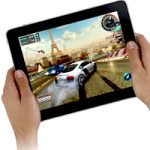
IDC walloped and bear hugged Apple a day before iPad 2 officially goes on sale. During fourth-quarter 2010, iPad market share fell from 93 percent to 73 percent sequentially, according to the analyst firm. However, IDC expects iPad market share to remain in the 70 percent to 80 percent range throughout 2011. Additionally, IDC released data on ebook reader shipments, which more than doubled quarter on quarter to 12.8 million units.For all 2010, 18 million tablets shipped, with iPad capturing 83 percent market share.
Well, so much for the nearly 100 tablet contenders. Then again, these mobile device markets are so fast changing, it's hard to trust any analysts' projections, particularly when there is no consensus on definitions. For example, Canalys and NPD DisplaySearch classify tablets like iPad as PCs. IDC does not. It's definition: "Media tablets are tablet form factor devices with color displays larger than 5 inches and smaller than 14 inches running lightweight operating systems (such as Apple's iOS and Google's Android OS) and can be based on either x86 or ARM processors. By contrast, tablet PCs run full PC operating systems and are based on x86 processors."
Which is the more popular web browser?

Late yesterday, I asked "Which web browser do you use?" -- not really planning a follow-up post. But given Betanews reader response, the informal -- and purely anecdotal -- poll warrants something more. Drum roll, please. And the most popular browser -- Chrome, Firefox, Internet Explorer, Opera, Safari or something else -- is: none of them. Betanews readers generally use more than one, which supports what I explained yesterday: NetApplications' monthly browser stats refer to usage share, not the stated market share.
That said, you generally prefer the newest browser(s) when available, and some of you generally use one lots more than others. Very few respondents cited need to use Internet Explorer for corporate compatibility reasons, suggesting Microsoft's efforts to move enterprises away from ActiveX has largely succeeded. In fact, only one respondent mentioned ActiveX at all, which further supports my supposition.
Which web browser do you use?

Whoever said web browser development is dead? Geez Louise, could there be any less, or is that more, browser news this month? Microsoft is trying to kill Internet Explorer 6 (again). Internet Explorer 9 releases on March 14, while Microsoft is preparing to debut early IE 10 at MIX11 in April. Yesterday, Google popped out Chrome 10, while today Apple released Safari 5.04. Opera opened an app store yesterday. Not to be left out, Mozilla posted Firefox 4 Release Candidate 1. Did I miss anything?
Given all this browser buzz, it's good time to do an informal survey of Betanews readers. Yes, I could check the site logs (and may still) but I want to know specifically which browsers (since many people use more than one) and why. If IE 7, why not IE 9 RC? Perhaps you spend most of the day using an iPad and mobile Safari. Or maybe your work PC has (cough, cough) IE 6, but you use IE 8 and Chrome at home. I'd like to know, and I'm betting there are other Betanews readers who are interested, too. So please answer the question -- "Which web browser do you use?" -- in comments, or email joewilcox at gmail dot com.
How could Steve Ballmer screw up Microsoft's HP partnership?
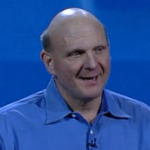
Somewhere, in an alternate universe, Microsoft did the right thing: Bought Palm instead of cut a deal with Nokia. But in this reality, Microsoft screwed up, not just by letting Palm go but clearing way for HP to make the acquisition. Now HP, Microsoft's strongest OEM partner, is turncoat, planning to put WebOS on every HP PC by 2012. It's simply unthinkable.
Just 11 months ago, HP revealed plans to buy Palm for $1.2 billion -- a pittance if just to get WebOS. Four months earlier I gave "10 reasons why Microsoft should buy Palm now." But Microsoft CEO Steve Ballmer and his top executives let Palm get away. (Hey, I gave good advice -- for free!) Ballmer was willing to spend $44 billion for Yahoo just a few years ago, and Nokia will reportedly receive $1 billion from Microsoft as part of the Windows Phone OS distribution deal. Palm was a garage sale, by comparison.
Chrome 10 seeds Google's Cloud OS ambitions

Google is preparing anyone using Chrome 10, which released yesterday, for launch of Chrome OS. The new standalone browser has reached feature parity -- for business, consumer or IT pro evaluator users, anyway -- with Chrome OS browser front-end running on Google Cr-48 laptops. Chrome 10 is a much bigger browser release than even Google's boasting -- "speedier, simpler, safer" -- lets on. Google is beginning its biggest push yet to the cloud, and Chrome OS is quickly, and I do mean quickly, approaching v1 release. Apple and Microsoft had best watch out, because among major platform developers they have the most to lose should Google's cloud ambitions succeed.
Chrome 10's standout features, at least for cloud computing, all begin with "s": sandbox, search, services, simplicity, security, settings, speed, stability and synchronization. Many of these attributes interrelate or aren't new to this browser release -- they're improved for cloud readiness.
Are mobile developers violating open-source licenses?
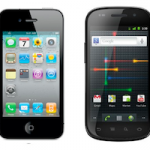
Yes. That's the conclusion OpenLogic reached after scanning 635 representative popular paid and free mobile applications, 66 of which contained open-source code. Among them, 71 percent of Android and iOS apps failed to meet open-source license requirements, by varying degrees. The most egregious violators placed copyrights where they shouldn't be. But the most surprising results came from Android apps, where GPL/LGPL license compliance was 0 percent. You're not misreading -- 0 percent.
Kim Weins, OpenLogic senior vice president of products and marketing, is presenting the results later this afternoon at AnDevCon -- the Android Developer Conference -- in San Francisco. OpenLogic evaluated compliance with GPL/LGPL and Apache open-source licenses, using four, basic criteria. For GPL/LGPL: "provide source code or an offer to get the source code" and "provide a copy of the license." For Apache: "provide a copy of the licenses" and "provide notices/attributions."
You will buy iPad 2

Yesterday I asked Betanews readers "Who will buy iPad 2?" -- wondering is it you? Readers who took time to email are much more likely to buy iPad 2 than those who commented. Based on readers' answers to questions about iPad 1 or iPhone 4, I expected that most Betanews readers wouldn't buy Apple's second-generation tablet when it goes on sale this Friday. Surprisingly, many respondents say they will buy iPad 2. The majority of people who wouldn't buy iPad 2 aren't interested in any tablet.
"I plan on buying," Scott Adams writes by email. "I did not buy iPad 1. I wanted one but knew that if I had waited it would be much improved. I knew it would have FaceTime. I had thought that it would have Retna [display] also. I have been waiting for about 7 months now. So, I knew at launch unless I really hated it that I would buy it." Contrary to widely blogged rumors, iPad 2 doesn't have Retna display.
Joe's Bio
Joe Wilcox is BetaNews executive editor. His motto: Change the rules. Joe is a former CNET News staff writer, JupiterResearch senior analyst, and Ziff Davis Enterprise Microsoft Watch editor.
Ethics Statement© 1998-2025 BetaNews, Inc. All Rights Reserved. Privacy Policy - Cookie Policy.
